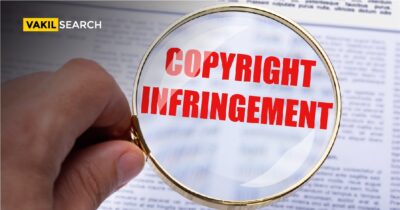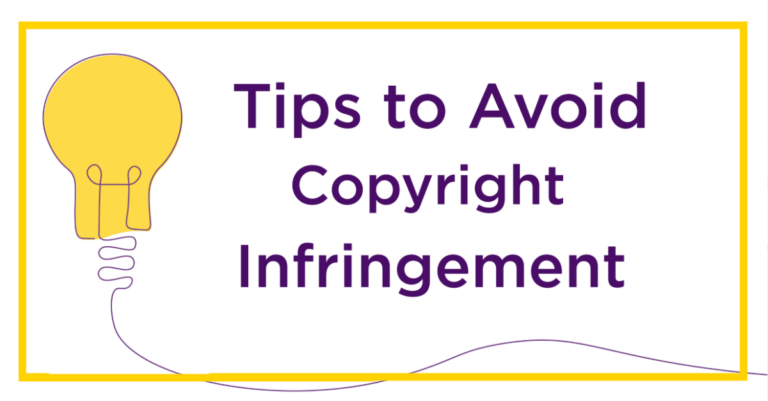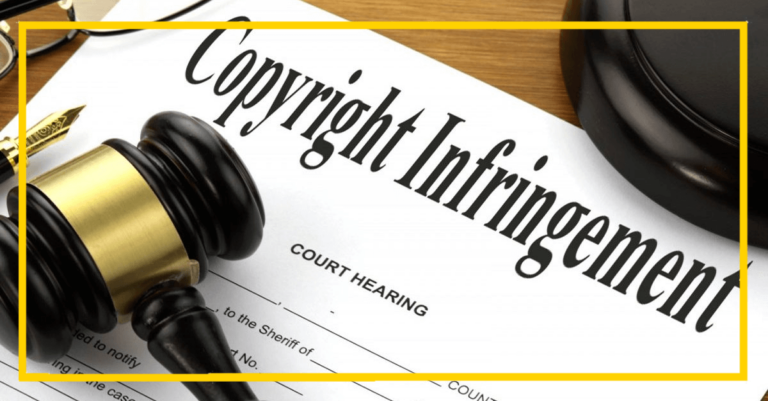Dive into Indian copyright law's criminal aspects, with a focus on IPC sections and a comparison with civil remedies under the Copyright Act.
In India, copyright infringement is not just a violation of intellectual property rights but also a criminal offense that can lead to legal consequences. These consequences are outlined in the Indian Penal Code (IPC), which plays a significant role in addressing copyright violations. In this article, we will delve into the specific IPC Section for Copyright Infringement, compare the IPC’s stance with the Copyright Act, and provide insights into how these legal provisions protect creators and their intellectual property.
IPC Section for Copyright Infringement
Copyright infringement falls under the purview of the Indian Penal Code, primarily in Sections 63 to 70. These sections delineate various acts that constitute copyright infringement and the penalties associated with them. Here is an overview of the key IPC sections related to copyright infringement:
Section 63 – Offenses Relating to Counterfeit Currency Notes and Bank Notes:
While Section 63 primarily deals with counterfeit currency and banknotes, it also covers the offense of printing, publishing, or selling copyrighted works without the author’s permission. The section provides for imprisonment of up to two years and/or a fine for those found guilty of such offenses.
Section 65 – Tampering with Computer Source Documents:
Section 65 of the IPC addresses the act of tampering with computer source documents, which includes altering, damaging, or deleting computer programs or data. This section can be invoked in cases where copyrighted software or digital content is unlawfully tampered with or pirated. Violators may face imprisonment for up to three years and/or a fine.
Section 66 – Computer-Related Offenses:
Section 66 is a comprehensive provision that covers various computer-related offenses, including acts that may lead to copyright infringement. Activities such as unauthorised access to computer systems, data theft, and data breaches can be linked to copyright violations, especially when intellectual property is compromised in the process. The penalties under this section include imprisonment for up to three years and a fine.
Section 66B – Punishment for Dishonestly Receiving Stolen Computer Resource or Communication Device:
This section addresses the act of dishonestly receiving stolen computer resources, which can encompass copyrighted digital content. Individuals found guilty of receiving and distributing copyrighted materials obtained through unauthorised means may face imprisonment for up to three years and/or a fine.
Section 66C – Identity Theft:
Identity theft, as covered under Section 66C, can indirectly relate to copyright infringement cases when an individual impersonates a copyright holder or author to gain unauthorised access to copyrighted materials. The penalties for identity theft may include imprisonment for up to three years and a fine.
Section 66D – Cheating by Personation:
Similar to identity theft, cheating by personation involves impersonating someone else, potentially a copyright holder or authorised user, to deceive and access copyrighted content fraudulently. Those found guilty of such offenses may face imprisonment for up to three years and a fine.
Section 66E – Violation of Privacy:
In cases where copyright infringement infringes upon an individual’s privacy, Section 66E can be invoked. This section deals with capturing, publishing, or disseminating private images or videos, which can be relevant in copyright infringement cases involving personal or private content. The penalties for violating privacy may include imprisonment for up to three years and a fine.
Section 66F – Cyber Terrorism:
While primarily focused on acts of cyber terrorism, Section 66F can apply when copyright infringement is carried out with malicious intent to disrupt systems, networks, or digital content distribution platforms. Offenders may face severe penalties, including imprisonment for life.
Comparison With the Copyright Act
While the IPC provides a legal framework for addressing copyright infringement, it is essential to understand how its stance compares to the Copyright Act. The Copyright Act primarily focuses on civil remedies and protecting the rights of copyright holders. Here’s a comparative analysis:
IPC Section for Copyright Infringement: Criminal Offenses
The IPC deals with copyright infringement as a criminal offense. It imposes penalties such as imprisonment and fines on individuals engaged in acts of copyright infringement, which may include unauthorised reproduction, distribution, tampering with digital content, or cybercrimes related to intellectual property.
Copyright Act: Civil Remedies
The Copyright Act, on the other hand, primarily offers civil remedies to copyright holders. It empowers copyright owners to take legal action against infringers through civil suits. Remedies under the Copyright Act include seeking damages, injunctions, and the right to claim profits earned from copyright infringement.
IPC: Focus on Criminal Intent
The IPC focuses on the criminal intent of offenders when addressing copyright infringement. It takes into account factors such as fraudulent intent, identity theft, and malicious actions that may harm copyright holders or their intellectual property.
Copyright Act: Civil Liability
The Copyright Act primarily imposes civil liability on infringers. It is not solely concerned with criminal intent but rather with proving the violation of copyright holder rights. In civil cases, the burden of proof rests on the copyright owner to establish infringement.
IPC: Penalties and Imprisonment
The IPC imposes significant penalties, including imprisonment, as a deterrent against copyright infringement. Depending on the severity of the offense, offenders may face imprisonment ranging from a few months to several years, along with fines.
Copyright Act: Compensation and Injunctions
The Copyright Act focuses on providing compensation to copyright owners for the losses incurred due to infringement. It also empowers copyright holders to obtain injunctions to stop ongoing infringement. Civil remedies aim to restore the copyright owner’s rights and compensate for damages.
Conclusion
IPC Section for Copyright Infringement – In the dynamic landscape of copyright enforcement, Vakilsearch stands as a dedicated ally to creators and copyright holders in India. Our mission is to empower individuals and organisations with the knowledge and legal support necessary to safeguard their intellectual property rights effectively.
With a deep understanding of the intricate interplay between the IPC and the Copyright Act, our experts offer comprehensive guidance to navigate the complexities of copyright enforcement. We provide valuable legal resources, consultations, and support to help copyright holders assert their rights and seek redress against infringement.
Vakilsearch’s role extends beyond legal support; it encompasses the protection of creativity and innovation in a digital and interconnected world. By leveraging our expertise and resources, creators and copyright holders can confidently protect their intellectual property, ensuring that their creative works receive the recognition and respect they deserve.









